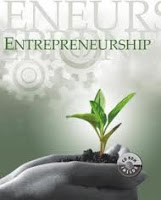Anarchism A History Of Libertarian Ideas And Movements.pdf
It is when we come to the use of the three words in a social-political context that we
encounter important shifts of meaning. "Anarchy" and "anarchist" were first used freely
in the political sense during the French Revolution. Then they were terms of negative
criticism, and sometimes of abuse, employed by various parties to damn their opponents,
and usually those to the Left. The Girondin Brissot, for example, demanding the
suppression of the Enragés, whom he called anarchists, declared in 1793, "it is necessary
to define this anarchy." He went on to do so:
Laws that are not carried into effect, authorities without force and despised, crime
unpunished, property
-10-
attacked, the safety of the individual violated, the morality of the people corrupted, no
constitution, no government, no justice, these are the features of anarchy.
Brissot at least attempted a definition. A few years later, turning upon the Jacobins it had
destroyed, the Directory descended to partisan abuse, declaring:
By "anarchists" the Directory means these men covered with crimes, stained with blood,
and fattened by rapine, enemies of laws they do not make and of all governments in
which they do not govern, who preach liberty and practice despotism, speak of fraternity
and slaughter their brothers...; tyrants, slaves, servile adulators of the clever dominator
who can subjugate them, capable in a word of all excesses, all basenesses, and all crimes.
Used moderately by Brissot or violently by the Directory, "anarchism" was clearly a
word of condemnation both during and after the French Revolution; at best it described
those whose policies one considered destructive and disastrous, at worst it was a term to
be used indiscriminately for the smearing of one's rivals. And so the Enragés, who
distrusted excessive power, and Robespierre, who loved it, were tarred by the same
invidious brush.
But, like such titles as Christian and Quaker, "anarchist" was in the end proudly adopted
by one of those against whom it had been used in condemnation. In 1840, PierreJoseph
Proudhon, that stormy, argumentative individualist who prided himself on being a man of
paradox and a provoker of contradiction, published the work that established him as a
pioneer libertarian thinker. It was What Is Property?, in which he gave his own question
the celebrated answer: "Property is theft." In the same book he became the first man
willingly to claim the title of anarchist.
Undoubtedly Proudhon did this partly in defiance, and partly in order to exploit the
word's paradoxical qualities. He had recognized the ambiguity of the Greek anarchos,
and had gone back to it for that very reason -- to emphasize that the criticism of authority
on which he was
DOWNLOAD
encounter important shifts of meaning. "Anarchy" and "anarchist" were first used freely
in the political sense during the French Revolution. Then they were terms of negative
criticism, and sometimes of abuse, employed by various parties to damn their opponents,
and usually those to the Left. The Girondin Brissot, for example, demanding the
suppression of the Enragés, whom he called anarchists, declared in 1793, "it is necessary
to define this anarchy." He went on to do so:
Laws that are not carried into effect, authorities without force and despised, crime
unpunished, property
-10-
attacked, the safety of the individual violated, the morality of the people corrupted, no
constitution, no government, no justice, these are the features of anarchy.
Brissot at least attempted a definition. A few years later, turning upon the Jacobins it had
destroyed, the Directory descended to partisan abuse, declaring:
By "anarchists" the Directory means these men covered with crimes, stained with blood,
and fattened by rapine, enemies of laws they do not make and of all governments in
which they do not govern, who preach liberty and practice despotism, speak of fraternity
and slaughter their brothers...; tyrants, slaves, servile adulators of the clever dominator
who can subjugate them, capable in a word of all excesses, all basenesses, and all crimes.
Used moderately by Brissot or violently by the Directory, "anarchism" was clearly a
word of condemnation both during and after the French Revolution; at best it described
those whose policies one considered destructive and disastrous, at worst it was a term to
be used indiscriminately for the smearing of one's rivals. And so the Enragés, who
distrusted excessive power, and Robespierre, who loved it, were tarred by the same
invidious brush.
But, like such titles as Christian and Quaker, "anarchist" was in the end proudly adopted
by one of those against whom it had been used in condemnation. In 1840, PierreJoseph
Proudhon, that stormy, argumentative individualist who prided himself on being a man of
paradox and a provoker of contradiction, published the work that established him as a
pioneer libertarian thinker. It was What Is Property?, in which he gave his own question
the celebrated answer: "Property is theft." In the same book he became the first man
willingly to claim the title of anarchist.
Undoubtedly Proudhon did this partly in defiance, and partly in order to exploit the
word's paradoxical qualities. He had recognized the ambiguity of the Greek anarchos,
and had gone back to it for that very reason -- to emphasize that the criticism of authority
on which he was
DOWNLOAD




Comments
Post a Comment